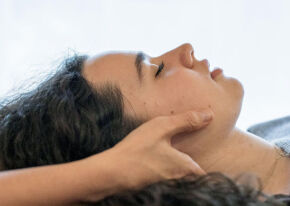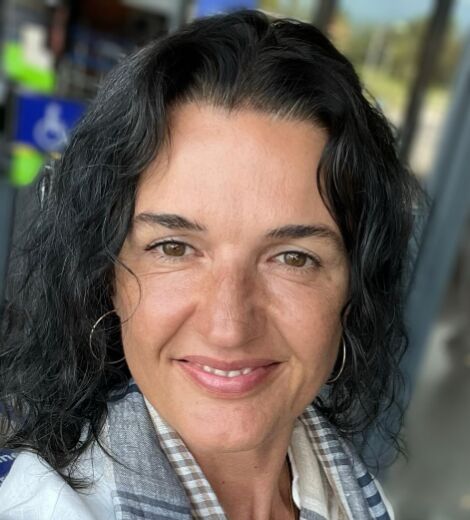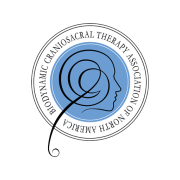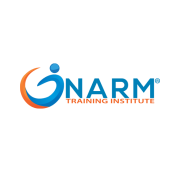Register to: Resonant Touch Immersion (24-26 April) | NARM® training or Stay updated-> Sign up for our newsletter!
Our training programmes go beyond just acquiring knowledge and learning new skills. They provide a journey into understanding the underlying causes of physical and mental health complaints and diagnosed disorders, and experiencing who we are as human beings behind the veil of our adaptations and behavioural strategies.

Who Are Our Trainings For?
Our trainings are suitable for professionals from a variety of backgrounds such as psychotherapists, counsellors, coaches and other mental health professionals, social workers and educators, doctors, nurses and other medical professionals, physiotherapists and other body workers, first responders, etc.
Seminars & Workshops - Opportunities to Deepen Self-Awareness & Develop New Skills
In addition to professional trainings, we offer seminars and workshops to impart practical, applicable knowledge and support personal growth. Our seminars and workshops are designed for individuals looking to deepen their understanding of themselves and develop specific skills.

In-depth Professional Trainings
Currently we organize in-depth professional trainings (for certification):
01
Healing Developmental Trauma (NeuroAffective Relational Model®, NARM®)
A comprehensive psychodynamic and somatic approach to treating the consequences of developmental and relational trauma.
02
Craniosacral Resonance
A comprehensive psychodynamic and body-oriented approach to treating the consequences of developmental and relational trauma.
Trainers and assistants hold permits from institutions below.
Supporting Greater Connection
We see ourselves as part of the emerging global trauma-informed, somatically-oriented movement. Our trainings, seminars and workshops provide an opportunity to gain new knowledge, skills and learn from each other. In that way we contribute to a more connected planet with less individual and collective suffering.

Seminars & Workshops
All Seminars & Workshops
NARM Practitioner Training – Introductory Call (February)
In preparation for the upcoming NARM Practitioner Training in Ljubljana, we will be offering two introductory calls for those who would like to get a sense of the work and how we engage with it.
-
16 February (18:00–20:30)
-
Online (Zoom)
-
free

NARM Practitioner Training – Introductory Call (April)
In preparation for the upcoming NARM Practitioner Training in Ljubljana, we will be offering two introductory calls for those who would like to get a sense of the work and how we engage with it.
-
2 April (18:00–20:30)
-
Online (Zoom)
-
free

Resonant Touch Immersion – April 24–26, Berlin
An experiential introduction into the living field of Resonant Touch
-
24–26th April 2026
-
Manoah Zentrum - Berlin
-
350,00 €

A SERIES OF 6 WORKSHOPS
How developmental trauma compromises our capacity to be fully alive and live our creative potential
-
To be announced.
-
To be announced.
-
Karima Valentina Hočevar
Metka Kuhar
-
190,00 € per Workshop
Trainings
All TrainingsLevel 2 NARM Therapist Training
Healing Developmental Trauma (NeuroAffective Relational Model®, NARM®)

NARM® is a comprehensive psychodynamic and somatic approach to treating the consequences of developmental and relational trauma. NARM® draws on psychodynamic models such as object relations theory; attachment theory, as well as on interpersonal neurobiology and somatic mindfulness. It offers a process-oriented approach to working in the here and now.
Course schedule
-
1st module:
July 15-19 2026
-
2nd module:
December 2-6 2026
-
3rd module:
June 9-13 2027
-
4th module:
November 24-28 2027
Venue
City Hotel Ljubljana, Dalmatinova 15, Ljubljana, Slovenia
Teacher
-

Tobias Konermann
Two-Year Professional Training

Craniosacral resonance is based on the “breath of life” concept. The breath of life is a universal creative principle which sustains and connects all life functions within all living organisms, including humans. An experienced craniosacral practitioner feels the expression of the breath of life as slow, rhythmic motion, similar to the tide. With a gentle, tuned and specific positioning of the hands, the practitioner listens to and supports the forces of the breath of life in their different expressions, thus enabling the body to access its own self-healing and regenerative resources.
Course schedule
-
Module I:
To be announced.
-
Module II:
To be announced.
-
Module III:
To be announced.
-
Module IV:
To be announced.
-
Module V:
To be announced.
Teachers
-

Chintan Vacheron
-

Karima Valentina Hočevar
-

Jan Prestor
Founder
We see ourselves as part of the emerging global trauma-informed, somatically-oriented movement and see these trainings as an opportunity to learn from each other and contribute to a more connected planet with less individual and collective suffering.

Karima Valentina Hočevar
Karima Valentina Hocevar is the founder of Mudita Institute and a trauma-informed therapist and teacher specializing in Biodynamic Craniosacral Therapy (BCST) and the NeuroAffective Relational Model (NARM). Since 2011, she has been co-teaching seminars in BCST in Slovenia and internationally. Since 2015, she has been part of the teaching team for NARM trainings across Europe, where she also serves as a supervisor. She is currently participating in the Time Wisdom Training (TWT) facilitated by Thomas Hübl, which focuses on collective trauma, inner development, and attuned presence.
Karima’s professional path is grounded in years of dedicated study and integration of diverse therapeutic approaches. Her work emphasises presence, inner spaciousness, and relational attunement—principles that form the heart of her teaching and therapeutic practice.
Beneath her professional experience lies a lifelong sensitivity to human relationships: how we connect, where we lose each other, and how we find our way back. Early formative experiences sparked a deep interest in the invisible dynamics between people and inspired her personal journey into mindfulness, self-inquiry, and healing. These experiences continue to shape her commitment to creating spaces of safety, resonance, and transformation.
Currently, Karima is in the process of developing Resonant Touch, a process-oriented therapeutic approach that synthesises her understanding of human wholeness with the core principles of BCST and NARM.












